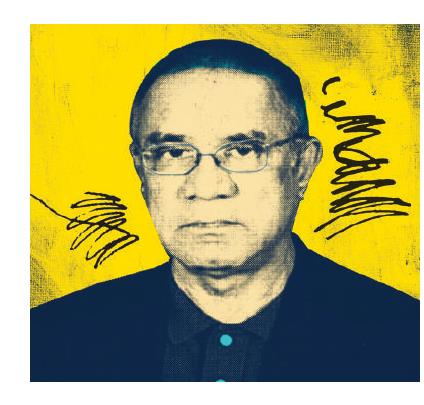Al-Biruni in chains
By Syed Nomanul Haq
2025-08-31
The glorious third sultan of the Ghaznavid dynasty Mahmud (r. 998-1030), who had conquered a vast territory from the Oxus (Jayhun/Amu Darya) to the Indus valley, advanced in 1017 on the left side of the Oxus and sacked Abu`l Abbas Ma`mun, the Khwarazmshahi ruler in Gorganj.
After having defeated Abu`l Abbas, the conquering sultan sent him an ultimatum that is reproduced in the Chahar Magala of the 12th century chronicler Nizami `Aruzi: `I have heard that there are at the Khwarazmshah`s court several men of learning, each peerless in his science, such as [so and so and so and so]. You must send them to our court, so that they may have the honour of being presented there and that we may derive prestige from their knowledge and capabilities.
This is typical. Whenever a dynasty was defeated, the conqueror not only acquired palaces and jewels and territory but also men of letters, artists and, particularly, poets. The victor considered the physical and human embodiment of letters such as books, manuscripts, scholars, libraries and, above all, poets to be part of the booty and loot. All of this was carried away on horses and snatched byforce ifnecessary.
Human individuals thus obtained were often given lavish patronage by the rulers. Many of them were appointed as state functionaries and advisers, besides being boon companions (nadim) of the sultan.
It is very important for us to note that the acquisition of scholars and poets as commodity not only brought symbolic glory and prestige, but these were items of concrete treasure that demonstrated real majestic power and served as crucial political muscle. This is unique to the Muslim Persianate world.
Patronage of men of letters was not a mere metaphor of glory and domination but, as the English scholar Clifford Edmund Bosworth tells us, it was irreversibly integrated into the actual running machinery of the empire. Bosworth emphatically highlights this telltale characteristic of the opulent Turkic Muslim rulers: `the financial basis of patronage was exactly the same as that upon which the fortunes ofthe dynasty andstate rested; one cannot explain the one without the other.` It is interesting that Mahmud Ghaznavi has beendescribed both in the tradition and by modern scholars as a great kidnapper. Thus Nizami says that whenever the sultan came across a man or a woman who was an expert in any skill, he deported them to his capital Ghazna. But most decisive is the ruthless declaration of the redoubtable 19th/20th century scholar E.G. Bowne `Mahmud Ghaznavi has often been described as a great patron of letters, but in fact he was rather a great kidnapper of literary men.
Yes, indeed, it is reported that there were in Mahmud`s court as many as 400 `kidnapped` poets, carrying out their art under the wings of Amir al-Shu`ara (PoetLaureate) Abu`l Qasim `Unsuri, singing songs of praise and writing panegyrics (gasida) in honour of their grand majestic patron. The polymath al-Biruni`s voice was also in this chorus.
Typical and particularly revealing are the stories of two giants of Islamic intellectual history al-Biruni, who has been declared by modern historians to be the greatest scientist of the Muslim world, and Ibn Sina (Latin Avicenna), one of the brightest stars on the firmament of world scientific culture.
Now, al-Biruni was in the court of the sacked Abu`l Abbas at Gorganj, whom we have met earlier. This scientist somehow didn`t wish to move to the Ghaznavid court in Ghazna, so he shifted to other patrons in the Transoxiana region, but so the reports have it he was eventually apprehended by the soldiers of Mahmud and it is quite likely that he was delivered as a prisoner to the sultan, presented in chains.
Under the patronage of the Ghaznavids, al-Biruni did monumental scientific and historical work, writing, among other things, his unparalleled Book of /ndia. And so his patrons ought to be looked at not only in the context of world political history; they are equally part of world intellectual history.
The case of Ibn Sina is dramatic. He too was in the Gorganj court, but determined that he would not yield to the demands of Mahmud Ghaznavi. Thus, he left Gorganj and travelled from door to door at different royal courts in the process, he was caught up in ugly political intrigues and was even imprisoned for some time. He ended up in Isfahan and, having heard that Mahmud`s soldiers were looking for him, he escaped with two slaves, his brother, and his biographer Juzjani all disguised as Sufis.
And just as Persianate sultans ought to be viewed in the context of intellectual history, scholars of the Turkic empires are to be placed in the context of political history.
This is a unique characteristic of Muslim dynasties.
The columnist teaches humanities at /BA Karachi




